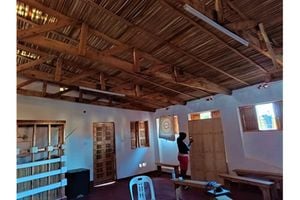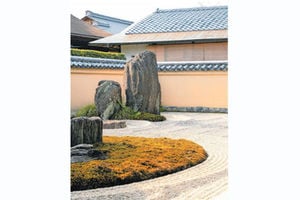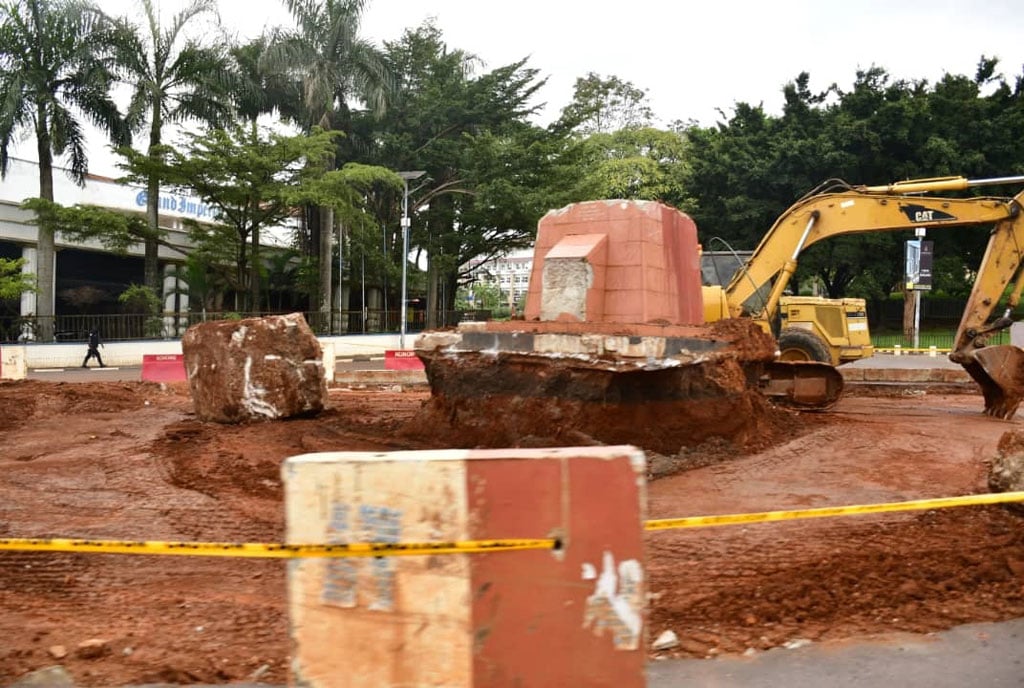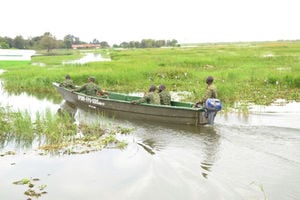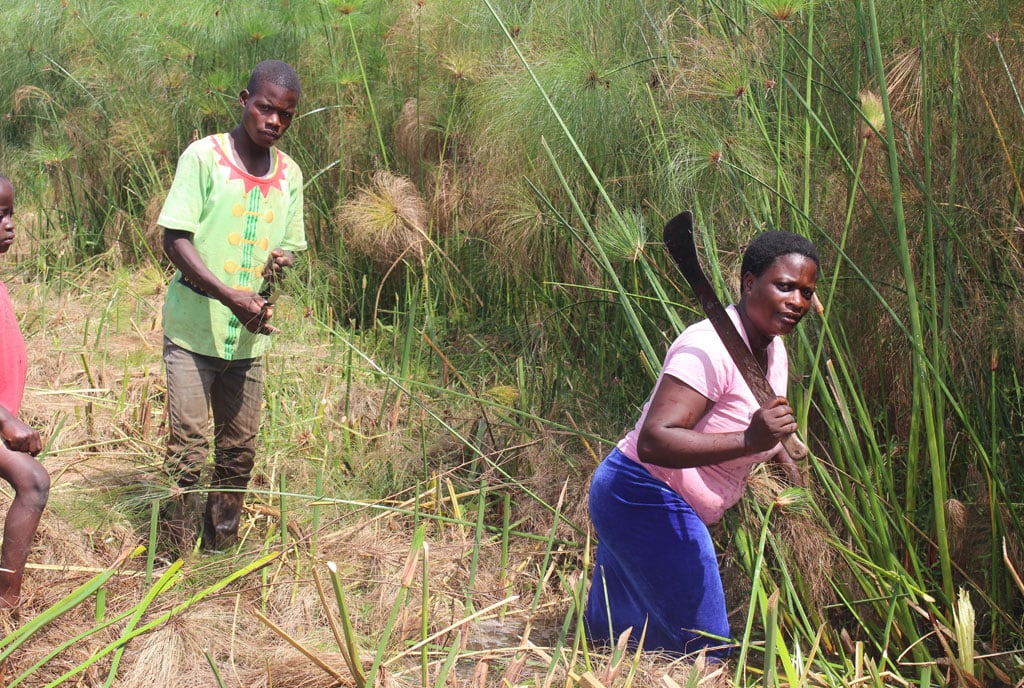
Ms Christine Nalwadda, a single mother, cuts papyrus reeds to raise money to fend for her family in Kayunga District at the weekend. PHOTO/FRED MUZAALE
Wielding a machete in her right hand, Christine Nalwadda and her two children wade through the water-logged Kantenga swamp near Kayunga Town in Kayunga District to cut papyrus.
Her youngest son, aged five years, closely follows her mother from behind.
With half of her lower body immersed in water, Nalwadda at some point lifts her youngest son after realising that the section is deep.
“Be careful when wading through that water because you can easily drown,” Nalwadda warns her son.
The single mother of four has since 2020 derived a livelihood through the sale of dry papyrus.
“Every morning, I wade through the water to reach the mature papyrus which I cut, dry and later sell to locals who make papyrus mats," Nalwadda says with a gloomy face.
A resident of Kayunga West Zone in Kayunga Town, Nalwadda met her fate in 2019 when she lost her husband.
Before the death of her husband, the family lived in a rented house in Kiwangula Trading Centre, about four kilometres from Kayunga Township.
"We used to also rent land where we grew tomatoes and pineapples for sale and food for home consumption. But when my husband died, I could no longer afford to rent the house in which we were staying with my children plus renting land for farming,’’ Ms Nalwadda notes.
This, Nalwadda, a Primary Seven dropout says, prompted her to look for a way of survival.
Since she had no capital to start an income-generating business, she decided to go and cut papyrus for sale since this did not require her to invest any money.
Initially she says, she had an idea of drying the papyrus and making mats, but this did not work since she realised that she didn't know how to weave them.
"I go to the swamp with my eldest son aged 14 years who dropped out of school to cut the papyrus and thereafter I spread them to dry near the swamp. During sunny weather, they take one week to dry, but if it is a rainy season like now, they take two weeks to dry,’’ Ms Nalwadda says.
When they are dry, she takes them at her rented room for sale.
Ms Nalwadda says that she sells each dry bundle of papyrus between Shs2,000 and Shs3,500 depending on the market demand.
However, she says she makes good sales of her raw materials in the month of December when artisans who make mats buy a lot of papyrus.
In a week, she says, she can earn about Shs20,000.
And it is this "meager" income that helps Nalwadda to rent a one-roomed house in which she now stays with her children and to pay for their education.
But Nalwadda reveals that she faces many challenges while in the bush where she cuts the papyrus.
She says because she lacks protective gear, her feet and fingers are often affected by the water as these rot and peel off.
It is because of this that she halts her work during heavy rains as wading in deep water becomes not only risky, but hectic.
Nalwadda also says that on several occasions, she has come across snakes and other poisonous insects while doing her work which forces her sometimes to abandon it and go back the following day.
She also adds that the market for papyrus is sometimes limited, and she has to wait for many days for customers.
"I am trying hard to learn how to make mats so that I can increase my income,’’ she notes.
Using savings from her work, Nalwadda is paying for her children's education although she says the money is not enough to sustain them in school as they are regularly sent home for school fees balance.
"I wanted my elder son to be a teacher, but my dream did not materialise,’’ she says.
Mr Charles Iga, the Kayunga District director for production, says she is not aware why Nalwadda did not benefit from government’s Parish Development Model programme, noting that it is people like her who are intended to benefit.
"I highly laud her (Nalwadda) for persevering to be able to fend for her family,’’ Mr Iga said.
Mr Andrew Muwonge, the Kayunga District police chairperson, describes Nalwadda as "an exemplary single mother" who instead of going around to beg has found something to derive her livelihood from.
ABOUT PAPYRUS REEDS
Once papyrus reeds are harvested and processed, they can be used to make high-quality baskets, purses, carpets, chairs, sleeping mats and blankets. The waste is also used as natural manure. Paper made from papyrus was the chief writing material in ancient Egypt, was adopted by the Greeks, and was used extensively in the Roman Empire.
[email protected] media.com
